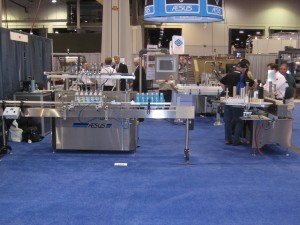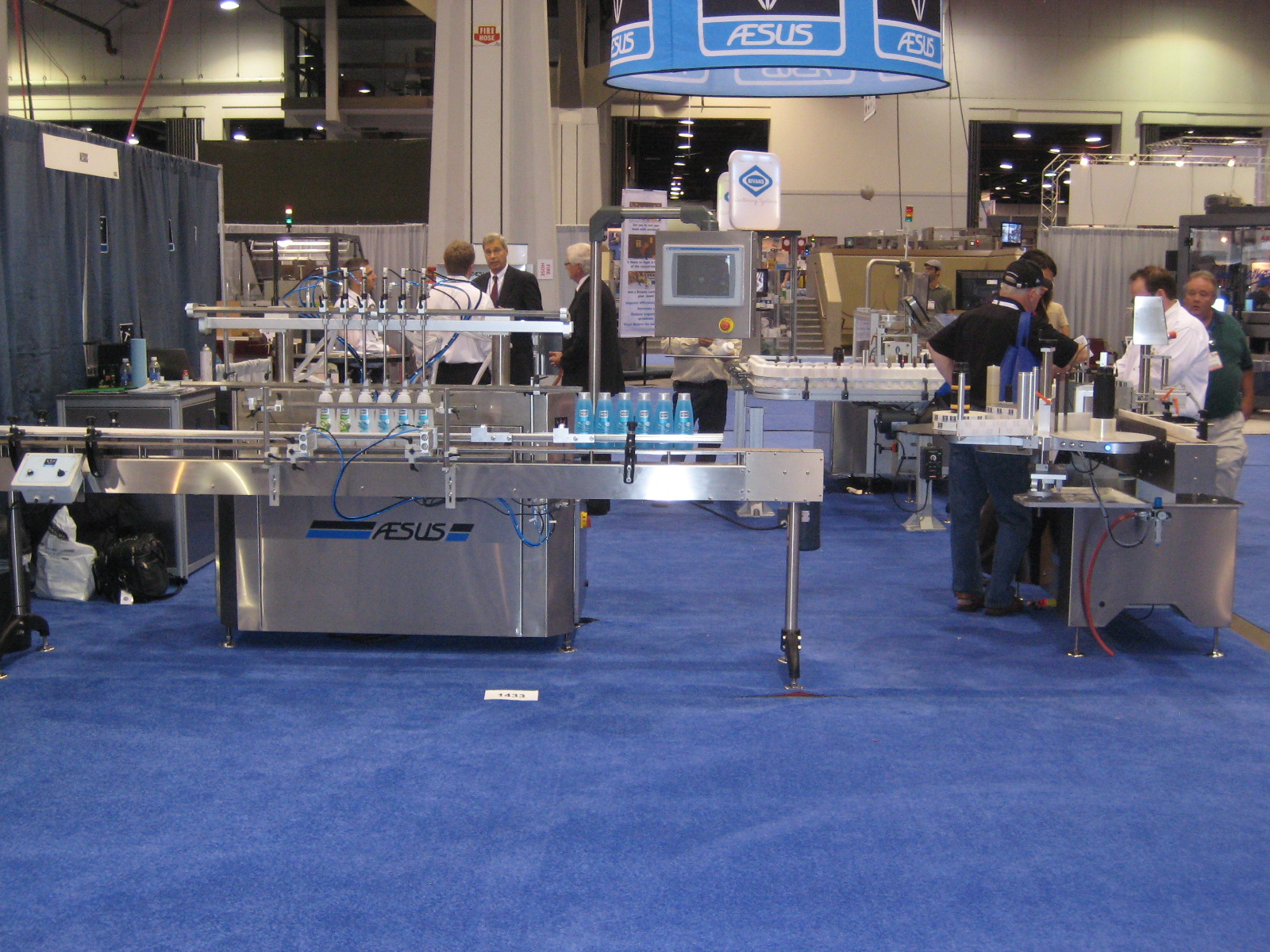
A private donor has provided funds for an SJSU packaging plant similar to this one, shown at a recent industry expo. Now in the design phase, the pilot plan will give hands-on experience to packaging, food science, and business students (photo by Fritz Yambrach).
By Amanda Holst, Public Affairs Assistant
Ever marvel over the clever plastic clam shell protecting your freshly harvested head of butter lettuce?
It’s this sort of innovative packaging that San Jose State students may one day develop for all kinds of local businesses, from organic farmers shipping delicate fruits and vegetables to wineries seeking to boost the shelf appeal of their chardonnnays.
Thanks to seed money provided by a private donor, SJSU Packaging Program Director Fritz Yambrach has begun to develop plans for equipment that will allow students to do this.
“Right now, I’m putting together proposals to build a packaging pilot plant, where students will be engaged with the selection of packages and the actual production, filling, sealing and labeling operations,” Yambrach said.
The field of packaging incorporates the disciplines of engineering, graphic design, project management, advertising, and material science. Every product manufactured from health care and beauty products to washing machines and drugs require packages to protect and sell the product.
All 45 packaging students as well as food science and business students will benefit from the project, and serve as packaging consultants.
“I think it’s a really good job training opportunity for us where we can get hands on experience and learn how to package different materials,” said first-year packaging technology graduate student Romica Chandra Lal.
Wine Packaging Pilot Line
A small wine packaging pilot line is another idea that could run concurrent with the packaging pilot plant, according to Yambrach. The wine packaging line would teach students hands-on techniques such as cleaning and filling bottles, the best way to label bottles, and how to run cappers and corking machines. UC Davis and Sonoma State Universities have wine programs, but do not focus on this part of wine production. Yambrach sees this as an opportunity.
“It would be interesting to see a cooperative program going with these universities to get students trained on wine production or receive a certificate in packaging,” Yambrach said. “The wine industry is very local to Northern California and public education should focus on local industries.”
Planning Process
According to Fritz, the project will take a year just to plan. But once completed, the pilot plant will offer clients below-cost products and services designed by students providing an equal if not higher level of service.
“There is an incredible amount of organic foods in California,” Fritz said. “These specialty food companies can increase their profit margins by picking up additional operations, such as selling nut paste in a tube.”
Partially funded by a $400,000 gift from a private donor, the late Jerry Erich, the plant would cost an estimated $2 million, assuming industry supporters donate equipment.
“It will take some time and effort to make a FDA and county approved food processing facility,” Yambrach said. “But we have the talent and just need support.”

